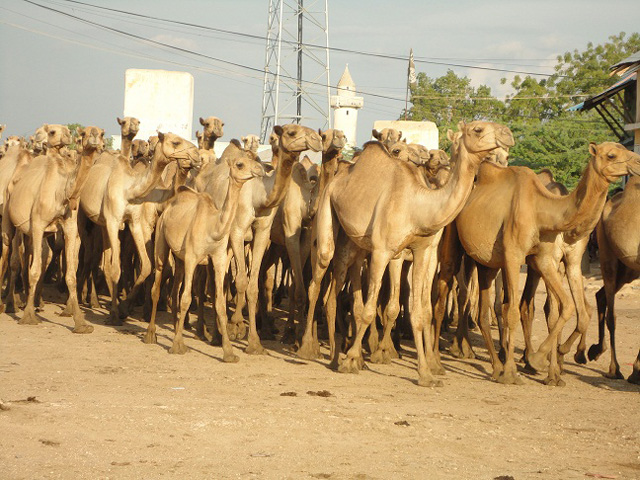
More than 4,000 camels have died of an undiagnosed disease in Ethiopia’s Somali region since May, bankrupting thousands of pastoralists.
Halimo Abdi, a resident of Sagag town in Nogob zone, lost the five camels in the first two weeks of May that her family depended on for their living.
The unprecedented crisis forced her to relocate to Ciidadow village, where she and her children are lacking food and shelter.
“I have 10 children whose father is ill. We have nothing at all, and we are sleeping in the open cold!” she exclaimed.
Halimo has started a small tea shop to provide her family with one meal a day, using half a bag of sugar she takes on credit from a local shop to make the tea. She sells two thermos flasks daily and makes at most 60 Ethiopian birr (just over one dollar) in profit.
Bashir Malin Mohamed, another affected pastoralist in Malayko, Nogob zone, has lost 15 of his 30 camels to the disease.
“We panicked when we lost our camels, but the residents and the government have counselled us. They promised to help us through this and that has calmed our hearts,” he said.
Bashir said they were shocked at the way their camels collapsed and died on the spot.
“When the disease hits, the camel makes a noise and falls to the ground. Pregnant ones abort prematurely as they are dying,” he said. “I have never seen 15 camels die at once in the Gu’ season. This is a natural calamity we haven’t ever heard of before.”
Local people stopped consuming meat from the diseased camels after several people fell sick.
“Earlier when the disease was new, some of the pastoralists were slaughtering the sickly camels before they died. But those who ate the meat fell sick. I myself was hospitalised for 10 days after eating the meat of a diseased camel,” Bashir told Radio Ergo’s local reporter.
Locals have burnt the carcasses of most of the camels that died of the disease.
Samples from the affected camels have been sent to the Ethiopian National Veterinary Laboratory in Addis Ababa.
Dr Abdifatah Ahmed, a veterinarian at the Somali Regional Veterinary Laboratory, was sent to the area to collect data on the outbreak. He warned the public not to consume camel meat or milk until the disease is identified.
“I advise the pastoralists to quarantine the camels exhibiting signs of illness. I also advise them to take precautions with the diseased camels and to burn the carcasses or bury them in a two-metre hole,” he said.
Source: Radio Ergo


